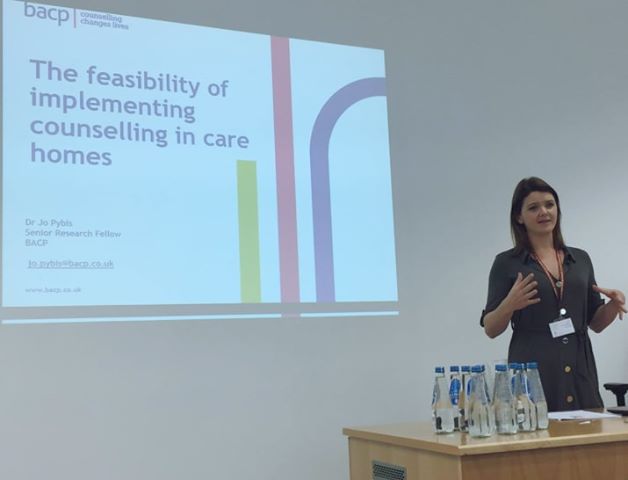With poor mental health affecting an estimated 60% of residents, and limited access to talking therapies, we are leading research to increase understanding of the value and viability of counselling in care homes.
Meeting need within care homes traditionally focuses on the management of physical health, which is often complex and requires medical expertise and support.
Many residents are widowed, many live with multiple long-term physical conditions, many have dementia and are likely to be on multiple types of drugs, but all have great life experience and a potential to continue a meaningful existence despite apparent limitations.
Counselling enables growth
In her book Living Well and Dying Well – tales of counselling older people, Helen Kewell explores how counselling enables growth and redefining of self, even as end of life approaches.
Through her work and writings Helen explains that relational depth, time given to listening and understanding the losses, gains and reflections of a life lived, are powerful and affirming tools that can restore value, identity and sense of self at any age.
As part of our Older People research strategy, we're leading on research to understand the value and viability of counselling in care homes.
In the spring of 2020, counsellors will be introduced to three care homes of different sizes and Care Quality Commission (CQC) ratings.
Critical to foster connections
From work carried out to date, we’ve learned from our members who have worked in care homes that it’s critical to foster connections and relationships with care teams, establishing mutual understanding of roles and boundaries from the outset.
Previous research has shown that care workers often feel undervalued and unsupported in their roles which in turn has a detrimental impact on their wellbeing and ability to deliver patient care.
Following interviews with care home managers and care teams, our pilot project is taking a ‘whole-system’ approach, offering opportunities for wellbeing supervision for staff.
Dr Jo Pybis, our Senior Research Fellow, said: “Because of its potential to improve wellbeing in later life, it’s vital that we work to understand how counselling best fits into care homes.
“The next step in our study is a ‘proof of concept’ study in three care homes in the Midlands which will inform a bid for a larger feasibility study, providing evidence of efficacy, impact and cost.
Robust evidence
“We will be working with academic and healthcare partners to ensure that our study provides robust evidence as part of a wider movement to improve later life wellbeing.”
Dr Pybis will share information about the research to delegates at the 14th Dementia Congress in Doncaster today.
The three-day Dementia Congress offers plenary sessions, parallel sessions, interactive workshops, symposia, posters, early-bird sessions, special events and installations.
The congress incorporates the National Dementia Care Awards, which recognise and reward the work being carried out in dementia care.
Read more about our work to promote the value of counselling for older people.
Find out more about our counselling in care homes research project.

Senior Research Fellow Dr Jo Pybis is speaking at the Dementia Congress
